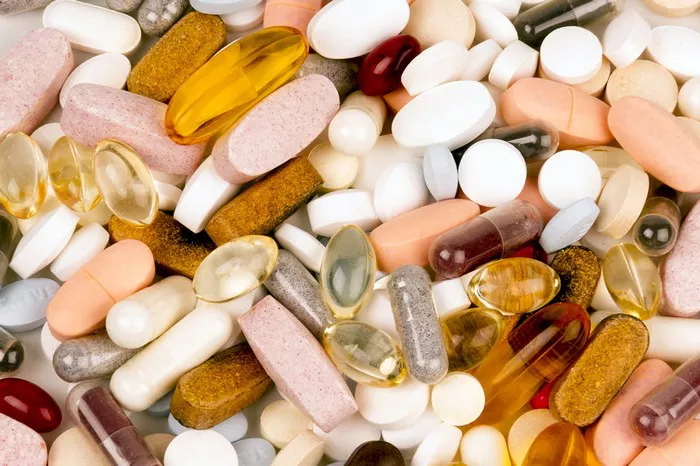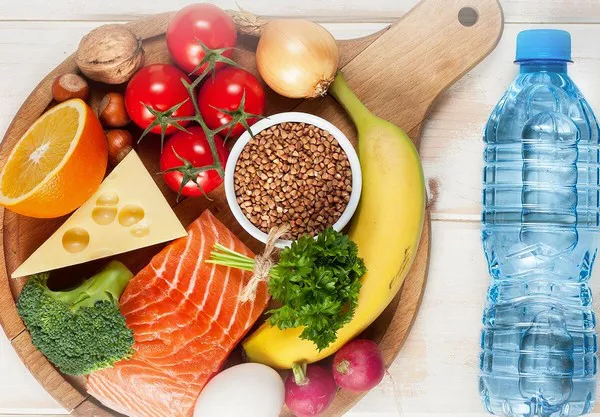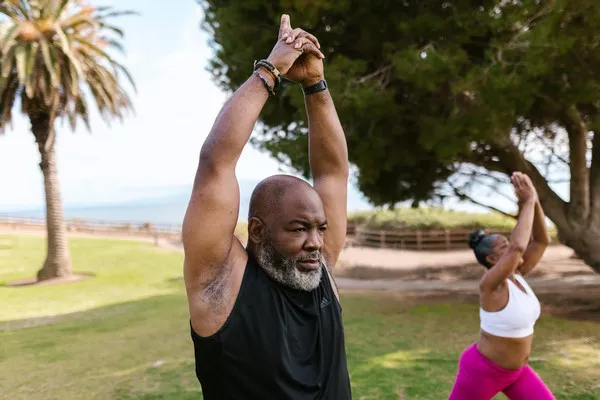Muscle soreness is a common issue, often arising from exercise, physical labor, or even everyday activities. While rest and proper hydration are crucial for muscle recovery, certain vitamins can also play a significant role in alleviating soreness and promoting muscle health. This article explores the key vitamins that can help soothe sore muscles, their benefits, sources, and how they work to support muscle function and recovery.
Understanding Muscle Soreness
Before diving into the vitamins that can help with sore muscles, it’s essential to understand what causes muscle soreness. Muscle soreness can be classified into two main types:
Acute Muscle Soreness
Acute muscle soreness occurs during or immediately after exercise. This type of soreness is usually due to the accumulation of lactic acid and other metabolic byproducts in the muscles.
Delayed Onset Muscle Soreness (DOMS)
DOMS typically sets in 24 to 72 hours after exercise. It is primarily caused by microscopic damage to muscle fibers, leading to inflammation and pain. Activities that involve eccentric muscle contractions, such as downhill running or weight lifting, are particularly likely to cause DOMS.
The Role of Vitamins in Muscle Health
Vitamins are essential nutrients that support various bodily functions, including muscle health and recovery. The following vitamins are particularly beneficial for alleviating muscle soreness and promoting overall muscle function.
Vitamin D
Benefits
Vitamin D is crucial for bone health, but it also plays a significant role in muscle function. It helps regulate calcium and phosphate levels in the body, which are essential for muscle contraction and strength. Adequate levels of vitamin D can help prevent muscle weakness and pain.
Sources
Sunlight: The body synthesizes vitamin D when exposed to sunlight.
Food: Fatty fish (salmon, mackerel), fortified dairy products, and egg yolks.
Supplements: Available in various forms, including D2 (ergocalciferol) and D3 (cholecalciferol).
Recommended Intake
The recommended daily allowance (RDA) for vitamin D varies by age, gender, and life stage, typically ranging from 600 to 800 IU (15-20 mcg) for adults. However, some individuals may require higher doses to maintain optimal levels.
Vitamin C
Benefits
Vitamin C is a powerful antioxidant that helps reduce inflammation and oxidative stress in muscles. It is essential for collagen synthesis, which supports the repair of connective tissues and muscle fibers. Vitamin C also enhances the immune system, aiding in overall recovery.
Sources
Fruits: Citrus fruits (oranges, grapefruits), strawberries, kiwi.
Vegetables: Bell peppers, broccoli, Brussels sprouts.
Supplements: Available in various forms, including ascorbic acid.
Recommended Intake
The RDA for vitamin C is 90 mg for men and 75 mg for women. Higher doses may be necessary during periods of intense physical activity or stress.
Vitamin E
Benefits
Vitamin E is another potent antioxidant that helps protect muscle cells from oxidative damage caused by free radicals. It can reduce muscle soreness and improve muscle recovery by minimizing inflammation.
Sources
Nuts and Seeds: Almonds, sunflower seeds, hazelnuts.
Oils: Sunflower oil, safflower oil, wheat germ oil.
Vegetables: Spinach, broccoli.
Recommended Intake
The RDA for vitamin E is 15 mg (22.4 IU) for adults. It is important to obtain vitamin E from a balanced diet, as excessive supplementation can lead to adverse effects.
Vitamin B Complex
Benefits
The B vitamins, including B1 (thiamine), B2 (riboflavin), B3 (niacin), B6 (pyridoxine), B9 (folate), and B12 (cobalamin), play vital roles in energy production, muscle function, and repair. These vitamins help convert food into energy, support red blood cell production, and aid in protein metabolism, all of which are crucial for muscle health.
Sources
Whole Grains: Brown rice, oats, barley.
Animal Products: Meat, poultry, fish, eggs, dairy.
Legumes and Nuts: Beans, lentils, peanuts, almonds.
Leafy Greens: Spinach, kale.
Recommended Intake
The RDAs for B vitamins vary widely depending on the specific vitamin. For example, the RDA for vitamin B6 is 1.3-1.7 mg for adults, while the RDA for vitamin B12 is 2.4 mcg. A balanced diet usually provides adequate amounts of B vitamins, but supplementation may be necessary in certain cases, such as for individuals with dietary restrictions or absorption issues.
Vitamin A
Benefits
Vitamin A is essential for immune function and cellular growth, both of which are important for muscle repair and recovery. It helps maintain the integrity of muscle tissues and reduces inflammation.
Sources
Animal Sources: Liver, fish oils, dairy products.
Plant Sources: Carrots, sweet potatoes, spinach, kale (as beta-carotene).
Recommended Intake
The RDA for vitamin A is 900 mcg for men and 700 mcg for women. It is important to balance intake, as both deficiency and excess of vitamin A can lead to health issues.
Magnesium
Benefits
Although not a vitamin, magnesium is a mineral that is crucial for muscle function and relaxation. It helps prevent muscle cramps and spasms, aids in energy production, and supports protein synthesis.
Sources
Nuts and Seeds: Almonds, pumpkin seeds.
Whole Grains: Brown rice, quinoa.
Vegetables: Spinach, Swiss chard.
Legumes: Black beans, chickpeas.
Recommended Intake
The RDA for magnesium is 400-420 mg for men and 310-320 mg for women. Magnesium supplementation can be beneficial, particularly for athletes and individuals who experience frequent muscle cramps.
Combining Vitamins and Minerals for Optimal Muscle Health
While individual vitamins are important, a holistic approach that combines various nutrients is often most effective for muscle health and recovery. Here are some combinations that can enhance muscle recovery:
Vitamin D and Calcium
Vitamin D enhances calcium absorption, which is vital for muscle contraction and strength. Ensuring adequate intake of both nutrients can help maintain muscle function and prevent soreness.
Vitamin C and Collagen
Vitamin C supports collagen synthesis, which is essential for repairing connective tissues and reducing muscle soreness. Consuming vitamin C-rich foods or supplements alongside collagen supplements can enhance recovery.
Vitamin B Complex and Iron
The B vitamins and iron work together to support red blood cell production and oxygen delivery to muscles. This combination is particularly important for preventing fatigue and promoting muscle endurance.
Antioxidant Vitamins (C and E)
Combining vitamins C and E can provide a powerful antioxidant defense against oxidative stress, reducing inflammation and promoting faster muscle recovery.
Practical Tips for Incorporating Vitamins into Your Diet
Here are some practical tips to ensure you are getting enough of these essential vitamins for muscle health:
Eat a Balanced Diet
A varied diet that includes plenty of fruits, vegetables, whole grains, lean proteins, and healthy fats will provide most of the vitamins and minerals your muscles need.
Consider Supplementation
If you have dietary restrictions, absorption issues, or specific health conditions, supplementation may be necessary. Always consult with a healthcare provider before starting any new supplement regimen.
Stay Hydrated
Proper hydration is essential for muscle function and recovery. Drinking enough water helps transport nutrients to muscle cells and flush out toxins.
Monitor Your Intake
Be mindful of your vitamin intake to avoid deficiencies and toxicities. Regular blood tests can help monitor levels and ensure you are meeting your nutritional needs.
Conclusion
Muscle soreness is a common issue that can be alleviated with the right nutrients. Vitamins such as D, C, E, and the B complex, along with minerals like magnesium, play crucial roles in muscle health and recovery. By incorporating these vitamins into your diet through food and supplements, you can support your muscles, reduce soreness, and enhance overall performance. Always consult with a healthcare provider to tailor a vitamin regimen that suits your individual needs and health status.
[inline_related_posts title=”You Might Be Interested In” title_align=”left” style=”list” number=”6″ align=”none” ids=”8731,8728,8574″ by=”categories” orderby=”rand” order=”DESC” hide_thumb=”no” thumb_right=”no” views=”no” date=”yes” grid_columns=”2″ post_type=”” tax=””]































